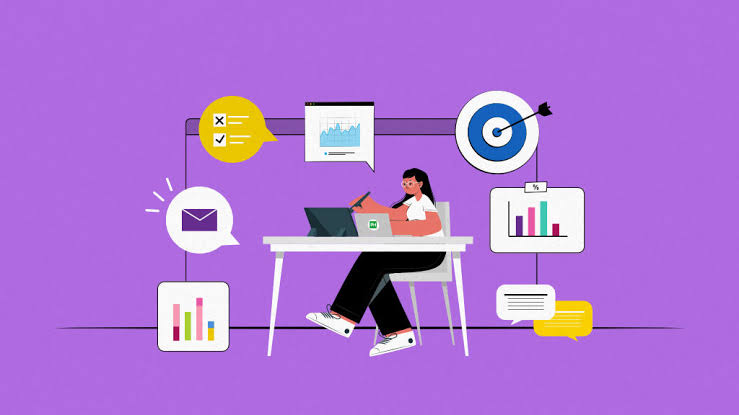In today’s fast digital world, productivity is more important than ever. For professionals, students, business owners, and creators, getting more done in less time is key to staying competitive and reaching goals. By July 2025, with new technologies and flexible work options, the boundary between work and life is blurred, so managing time well is crucial. Luckily, using simple and effective productivity tips can boost your efficiency without harming your well-being. Here are fifteen proven ways to help you get more done while keeping your focus and energy all day.
Start Your Day with a Clear Plan
Every productive day begins with a structured game plan. Taking five to ten minutes in the morning to outline your top tasks sets the tone for the rest of your day. This practice helps reduce decision fatigue and ensures you’re working toward meaningful goals instead of reacting to distractions. Digital planners and productivity apps like Notion, Todoist, or Sunsama have made it easier than ever to organize tasks and set clear priorities.
Apply the 80/20 Rule
Also known as the Pareto Principle, the 80/20 rule states that 80% of your results often come from 20% of your efforts. Identify the small set of activities that yield the biggest outcomes and focus your energy there. By concentrating on these high-impact tasks, you can work smarter, not harder, and dramatically boost your results.
Time Block Your Schedule
Rather than working aimlessly, divide your day into focused time blocks for specific tasks. Time blocking helps eliminate multitasking, which often decreases efficiency. Using tools like Google Calendar or Clockwise can help you visually map out your day, reserve uninterrupted time for deep work, and ensure breaks are scheduled intentionally.
Use the Pomodoro Technique
One of the most popular time-management hacks is the Pomodoro Technique—25 minutes of focused work followed by a 5-minute break. After four cycles, take a longer break of 15 to 30 minutes. This technique helps maintain sustained concentration while preventing mental fatigue. Apps like Focus Booster and Pomofocus are built around this principle and make it easy to implement.
Eliminate Digital Distractions
Smartphones and social media are the greatest thieves of attention. Use website blockers like Freedom or StayFocusd to restrict access to distracting sites during work sessions. Keep your phone in another room or activate Focus Mode to cut down on unnecessary notifications that pull you away from the task at hand.
Automate Repetitive Tasks
With the evolution of artificial intelligence and cloud-based tools, you can now automate repetitive tasks like data entry, email responses, or file organization. Platforms like Zapier, IFTTT, and Microsoft Power Automate allow you to connect apps and create workflows that run in the background, freeing up valuable time for more strategic work.
Declutter Your Workspace
A cluttered desk often leads to a cluttered mind. As of 2025, minimalist workspaces are trending again due to their psychological benefits. Keep only the essentials within reach and store or discard items that create visual noise. A clean environment improves focus, reduces stress, and helps you transition between tasks more smoothly.
Batch Similar Tasks Together
Context switching kills productivity. Instead of jumping between emails, meetings, and creative work, group similar tasks together. Respond to all emails in one batch, schedule all calls in a dedicated window, and reserve another block for creative or analytical tasks. Batching reduces mental load and helps maintain momentum.
Set SMART Goals
Specific, Measurable, Achievable, Relevant, and Time-bound goals help you clarify what you want and how to get there. Rather than vague intentions like “write more,” a SMART goal would be “write 1,000 words on the report by 4 PM today.” This framework ensures that your goals are actionable and trackable.
Learn to Say No
One of the most powerful productivity tools is the ability to say no. Overcommitting leads to burnout and mediocre work. Whether it’s a new project, a meeting, or a request that doesn’t align with your priorities, politely declining allows you to protect your time and invest it in what truly matters.
Use Voice Notes and AI Assistants
Thanks to advanced AI tools available in 2025, capturing ideas or managing tasks through voice has become more practical. Apps like Otter.ai or built-in voice assistants can transcribe your thoughts, take meeting notes, or even summarize your emails. This helps you offload mental clutter and focus on execution.
Take Regular Breaks
Ironically, doing nothing for a few minutes can make you more productive. Research has shown that short breaks help recharge the brain and improve long-term focus. Stand up, stretch, walk around, or practice a bit of mindfulness during breaks to reset your cognitive energy and return to work more refreshed.
Track and Reflect on Your Progress
Using daily or weekly reviews can help you evaluate what’s working and what needs improvement. Reflection tools like journaling, productivity dashboards, or even AI-driven analytics in apps like RescueTime can help you make smarter decisions about how to adjust your routines and optimize performance over time.
Practice Single-Tasking
Multitasking is a myth. The human brain works best when it focuses on one thing at a time. Rather than splitting your attention across multiple tabs, emails, or conversations, focus deeply on a single task until completion. This reduces errors and improves the quality and speed of your work.
Sleep, Nutrition, and Exercise
Finally, no productivity hack is effective without a healthy foundation. Proper sleep, balanced meals, and regular movement improve brain function, memory, and focus. As of 2025, wearable tech like smart rings and fitness trackers can help you monitor and optimize your physical health to support a more productive lifestyle.
Conclusion
Becoming more productive doesn’t mean working harder or longer—it means working smarter, with intention, structure, and balance. By implementing these fifteen productivity hacks, you can take control of your time, reduce stress, and achieve your goals with greater efficiency. With consistent practice and adjustment, these strategies can transform not just your workday, but your entire approach to personal and professional growth.



